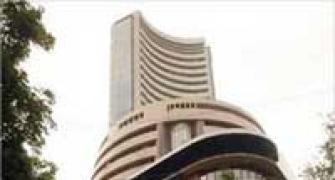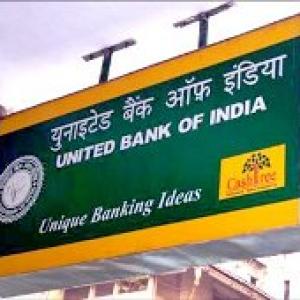 The initiative will neither help banks nor borrowers since the cost of funds will rise, but it will provide greater scope for product innovation and service excellence.
The initiative will neither help banks nor borrowers since the cost of funds will rise, but it will provide greater scope for product innovation and service excellence. ADITYA PURI
Managing Director, HDFC Bank
Banks will pass on the rate hike and borrowers will have to pay more. Savers will not gain either because account maintenance and other charges will rise
The Reserve Bank of India (RBI) has recently initiated a discussion on the deregulation of interest rates on savings deposits. The savings bank rate, which is decided by the central bank, is one of the few administered rates in the country right now.
The discussion paper on savings rate deregulation examines both the pros and cons of such a move. The discussion paper points out that such deregulation will enhance the attractiveness of the savings deposit product.
One of the biggest advantages of such a move, as mentioned in the discussion paper, is that it will improve monetary policy transmission. It is also argued that deregulation will lead to product innovation.
One must, however, remember that the savings account is not necessarily an instrument for the transmission of monetary policy actions. The primary objective of a savings bank account is to provide financial services to society.
For the middle and lower-middle class, it is always better to have a good rate on the savings account because they do not have enough money to follow other investment options.
Does it mean that the deregulation of the savings bank rate will benefit the common man? One should understand that if the savings deposit rate goes up, maintenance and other charges will also move up.
There is no such thing as a free lunch; every debit always has a credit. In our country, the account charges are among the lowest in the world. So, I don't think the common man will necessarily gain in a deregulated environment.
Banks have not really opposed the idea of deregulating the savings deposit rate. All that banks have said is don't deregulate when there is uncertainty over liquidity conditions in the system. Such a move should be undertaken in normal liquidity conditions.
In a normalised environment, in my view, the savings deposit rate is never likely to cross 4 per cent. It is wrong to expect the savings bank rate to only go up if it is deregulated.
Because once the savings rate goes up, the entire term structure of interest rate will change. I think overnight money with transaction costs to the bank will be at 4 per cent maximum in a normal environment.
Let me clarify, there is no fear among banks at least in my bank that margins will be squeezed if the savings deposit rate is deregulated because the cost of funds will rise.
It is true we have a relatively high share of current account savings account (CASA) deposits. About 51 per cent of our total deposits are in this category. But if you look at the overall industry, HDFC Bank's share of total bank deposits is only 3 per cent.
Our CASA is high because we offer the best services to our customers. So in a deregulated environment, based on service quality and charges, I will only gain.
But will it benefit society at large? The cost will go up since banks will pass on the rate hike and borrowers will have to pay more. Savers will not gain either because account maintenance and other charges will rise.
The discussion paper of the central bank notes that one of the disadvantages of the deregulation is that small savers and pensioners who depend on interest as a source of regular income may be affected.
The paper also says there could be occasions, especially in a surplus liquidity situation, when the savings deposit interest rate may decline even below the present level. These factors need to be considered before deregulating the rate.
Should the RBI decide to deregulate savings bank rate, as banks we will seek full deregulation. We cannot have half an international practice and half an Indian practice.
In that case, the regulator should allow banks to offer differential rates on differential balances of savings accounts. Also, banks should be allowed to decide the charges on their own. In such a situation, I assure you it is good for the common man if we have a regulated savings account.
As told to Somasroy Chakraborty
RANA KAPOOR
Founder, Managing Director and CEO,YES BANK
A market-based savings interest rate will accelerate greater financial inclusion of the un-banked, and also augment a higher savings propensity
As a precursor to complete deregulation of the savings deposit rate, the only administered interest rate at present, the Reserve Bank of India (RBI) in its annual monetary policy 2011 announced a 50 basis point increase in the savings rate to align it closer to short-term market rates.
The trigger to resume the discussion on savings rate deregulation possibly comes from the stickiness in inflation resulting in a persistently negative real savings rate, which has impacted small savers the most.
Also, the RBI may be drawing some comfort from Asian economies where deregulation of interest rates, coupled with credible monetary policy measures, not only led to enhancement and maintenance of positive real interest rates, but also contributed to an increase in financial savings.
In India, where a significant portion of household savings (particularly in semi-urban and rural areas) is still held in the form of cash, attractive interest rates on savings bank deposits will bring into the banking system a part of the Rs 9.5 lakh crore that households keep with themselves as cash.
One can hardly argue against the merits of deregulation that facilitates efficiency and fairness in allocation of resources:
They are also averse (and, at times, not savvy enough) to maximising their returns by placing their savings in fixed deposits or other investments. Since the savings deposit interest rate has not moved in sync with changing market conditions, it has been unfavourable to this depositor community.
A market-based savings interest rate will accelerate greater financial inclusion of the un-banked, and also augment a higher savings propensity, thereby creating a multiplier effect.
By allowing the entire term structure of interest rates to move in tandem with the policy rate, the transmission mechanism of monetary policy becomes more effective and timely, as is corroborated by Hong Kong's experience.
Savings rate deregulation will provide greater scope for product innovation and service excellence and a better opportunity for banks to cross-sell.
The rates would essentially be driven by relationship value, future potential and efficient transaction costs. Market forces will also ensure that banks make additional efforts to educate their customers on banking services and product features.
There are fears of unhealthy competition amongst banks, which may lead to a fall in profitability. These are unreasonable considering the positive experience of deregulation in term deposit rates and other interest rates including interest rates on loans over the past decade.
Though there may be some immediate impact on the cost of deposits, resulting in a compression of net interest margins, in the long run the spin-offs of healthy operations and higher mobilisation of savings will surely benefit those banks that are service-oriented and provide tangible value to their small savings depositors.
This is what happened in insurance, telecom and pharmaceuticals once they were aligned to free market principles. India is likely to emulate Hong Kong's phased deregulation of savings rate, which was followed by the launch of several new products, revised fee charges and minimum balance requirements, and the introduction of a tiered structure of interest rates.
Finally, savings rate deregulation will create a win-win situation for both the retail depositor and the banking system, and I look forward to the RBI taking this final step towards international best practices.








